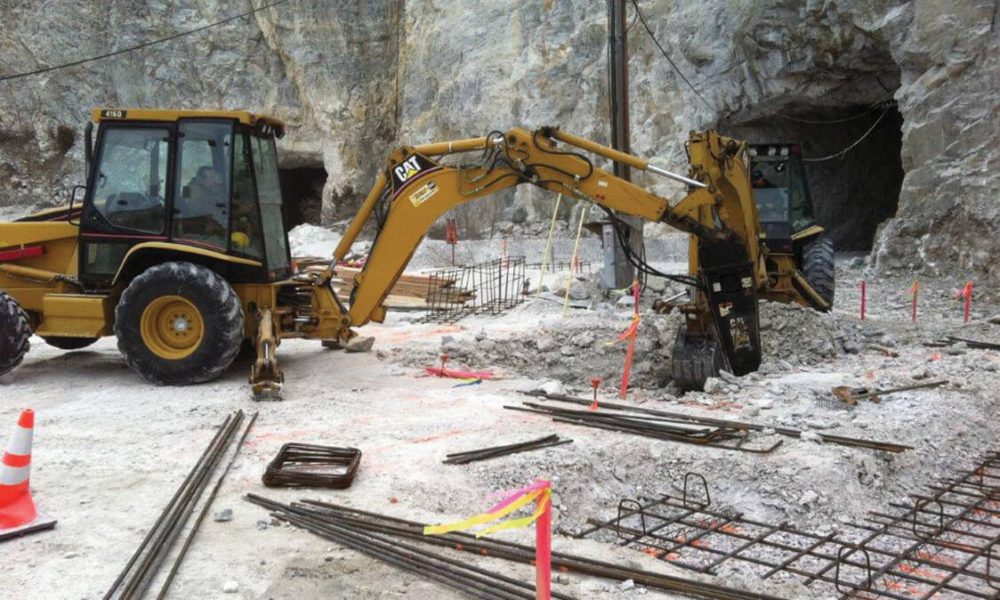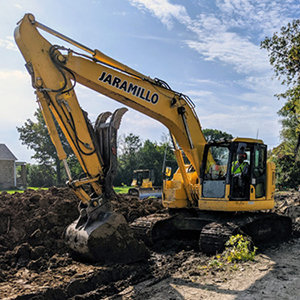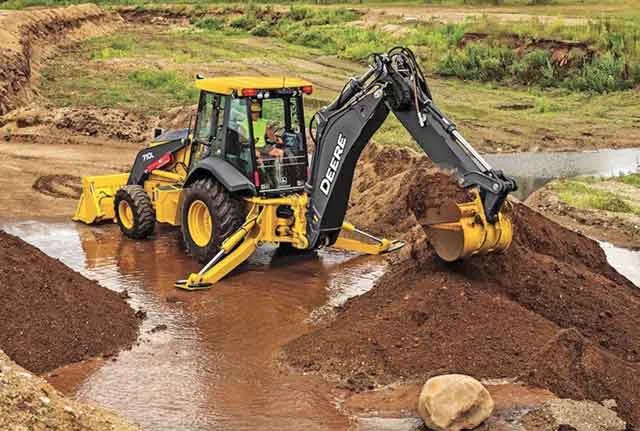Best Dump Truck Companies in Ohio - Top-Rated Dump Truck Providers
Best Dump Truck Companies in Ohio - Top-Rated Dump Truck Providers
Blog Article
Comprehensive Excavation Techniques: Understanding the Fundamentals for Success
In the realm of construction and civil design, the relevance of effective excavation strategies can not be overstated. The cautious planning, exact implementation, and thorough focus to detail needed in excavation jobs demand a thorough technique that incorporates various essential elements. From first dirt analysis to the implementation of safety and security measures and routine development surveillance, mastering these core components is vital for attaining success in any type of excavation endeavor. The true proficiency exists not simply in recognizing these principles but in perfectly integrating them to browse the complexities of excavation tasks with finesse.
Understanding Excavation Project Preparation

The initial stage of any excavation project is the preparation stage, where critical decisions are made that can substantially affect the outcome of the job. Recognizing the project spending plan, range, and timeline restrictions is vital for creating a thorough excavation strategy that makes sure the task's success.
One secret facet of excavation project preparation is the growth of an in-depth timeline that describes the sequence of due dates, activities, and landmarks. This timeline works as a roadmap for the job team, permitting them to track progress and make essential changes to make sure the project stays on timetable. Additionally, a distinct budget plan that makes up all expenses, consisting of equipment service, labor expenses, and materials, is important for avoiding cost overruns and hold-ups. By thoroughly thinking about all these elements throughout the planning phase, excavation jobs can be performed successfully and properly, causing effective end results.
Soil Analysis and Website Assessment
Carrying out extensive soil analysis and website assessment is a vital step in the preparation phase of any kind of excavation task. Soil evaluation includes establishing the structure, structure, and residential or commercial properties of the dirt at the excavation website. This information is critical for recognizing the dirt's bearing ability, moisture content, and capacity for disintegration, which are essential consider establishing the excavation techniques and tools needed for the task.
Site analysis exceeds soil evaluation and includes a more comprehensive evaluation of the overall site conditions. This evaluation consists of identifying any kind of potential risks, such as underground energies, environmental worries, or unpredictable terrain, that can impact the excavation process. By extensively evaluating the website, job managers can develop effective excavation techniques that focus on safety and security, performance, and ecological security.
Utilizing innovative technologies like ground-penetrating radar, soil tasting, and drone studies can boost the accuracy and effectiveness of dirt analysis and site examination. Investing time and sources in these initial steps can eventually conserve time and stop pricey hold-ups or problems throughout the excavation procedure.
Devices Selection and Application
Reliable excavation jobs count heavily on strategic equipment option and usage to ensure optimal efficiency and performance. Picking the right equipment for the work is important in optimizing effectiveness and lessening downtime. Elements such as the type of soil, deepness of excavation, and project extent play a substantial function in determining one of the most appropriate tools for the job at my response hand.

In addition to selecting the ideal equipment, correct application is crucial to project success. Operators has to be trained to manage the equipment safely and effectively - lancaster excavation. Normal upkeep checks and prompt fixings aid protect against malfunctions and guarantee constant performance throughout the task
Security Measures and Rules Compliance
In the realm of excavation tasks, prioritizing safety procedures and conformity with guidelines is critical to guaranteeing a legitimately audio and safe and secure operational environment. Safety actions incorporate a variety of techniques, consisting of carrying out complete website assessments, applying appropriate signs and obstacles, and giving sufficient security training for all personnel associated with the excavation procedure. Adherence to guidelines, such as OSHA requirements in the United States, makes sure that the excavation task meets the required standards to shield employees, onlookers, and the surrounding environment.

Tracking Progression and Adjusting Techniques
Just how can forecast supervisors efficiently track the development of excavation jobs and adapt their approaches as necessary to optimize outcomes? Monitoring development is vital for making certain that excavation jobs remain on track and satisfy due dates.

Conclusion
Finally, mastering the basics of comprehensive excavation approaches is important for the success of any task. By recognizing project preparation, examining soil and site conditions, choosing proper equipment, abiding by safety and security guidelines, and checking progression, job managers can ensure a smooth and effective excavation process. Carrying out these click reference approaches will cause effective results and decrease possible dangers or problems throughout the excavation project.
The initial stage of any excavation job is the planning phase, where vital decisions are made that can dramatically affect the outcome of the job. Understanding the job timeline, spending plan, and scope restrictions is crucial for creating a comprehensive excavation plan that makes sure the project's success.
How can project supervisors properly track the innovation of excavation projects and adjust their strategies as necessary to maximize end results? By very closely monitoring progress and being eager to adjust approaches, task managers can boost the general success of excavation jobs.
By comprehending project preparation, evaluating dirt and site problems, selecting proper equipment, abiding with security policies, and monitoring development, job managers can ensure a smooth and reliable excavation process.
Report this page